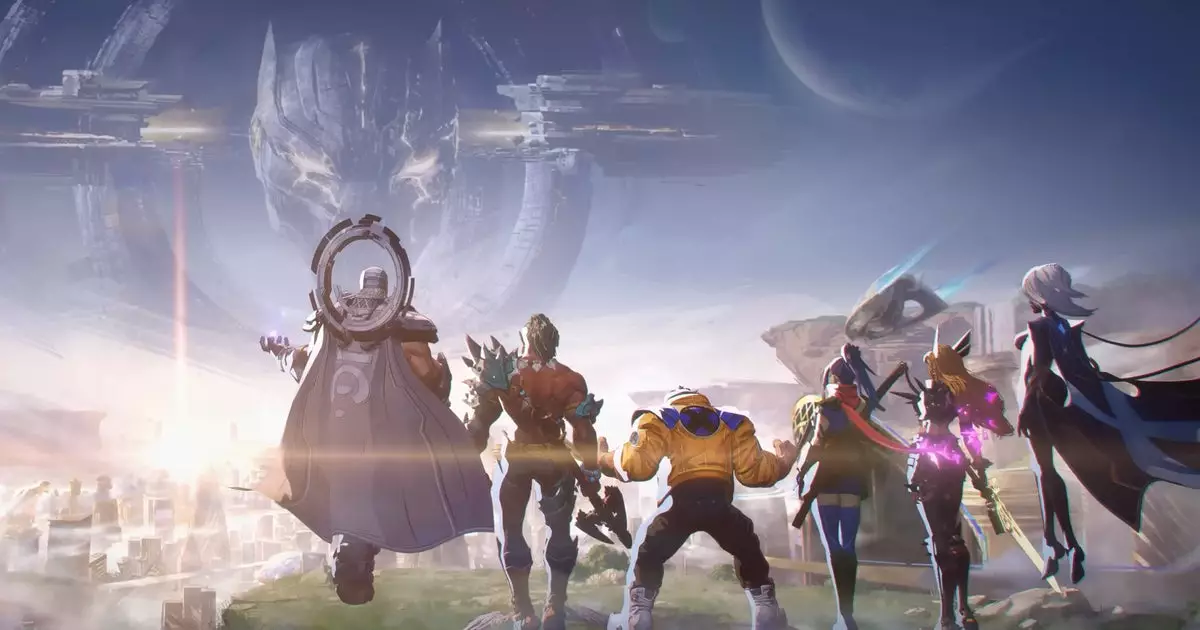In the expansive universe of gaming, player communities often act as both a fan base and a breeding ground for theories, speculation, and rumors. The recent commotion within the Marvel Rivals community serves as an illustrative case study in how misinformation, however well-intentioned, can spiral into widespread speculation. What initially began as a curious assertion on a Discord server has sparked spirited discussions among fans, leading to a larger narrative surrounding the gaming industry’s interactions with its audience.
The events took root in a niche Discord group, Marvel Rivals Leaks, where a community member named Keone speculated that the game’s publisher, NetEase, might be employing underhanded tactics to mislead dataminers. The notion that developers could be crafting fictitious hero profiles to trap leakers in their web of misinformation evokes both amusement and a degree of skepticism. While such strategies can be seen as clever, they reflect a more profound question about the responsibility game developers have towards their dedicated fanbase. After all, in a world where players are intensely scrutinizing every code snippet and leaker’s claim, could it be worth it to sow seeds of confusion?
This type of guerrilla marketing, or in this case, potential misdirection, does not merely entertain; it engages players, invoking curiosity and obsession that are critical in maintaining community interest. However, whether such tactics yield the desired effect without fostering distrust among the audience is a different game altogether.
As the rumor gained traction, prominent datamining groups like X0XLeak stepped in, adding layers of complexity to the narrative. Their initial disbelief — that NetEase would intentionally sow confusion — underscores the precarious nature of community speculation. The subsequent debate highlights a broader issue: the reliability of sources within the gaming community. In this case, while Keone’s assertions may have transformed into a chaotic mix of truth and fiction, they tapped into that distinctive gaming culture where every scrap of information is both sought after and interrogated.
The characters rumored to be part of the game have now garnered their moments of fame, thanks to this discordant speculation. The mention of lesser-known characters like Paste Pot Pete arguably injects a sense of nostalgia and intrigue. While some seasoned players might brush off these revelations, others — potentially those less familiar with the expansive Marvel Universe — might find themselves piqued.
In the midst of all this back-and-forth, a vital question remains: did this rumor mill yield positive or detrimental effects for the community? On one hand, it stirred excitement and involvement among fans, inviting them to speculate and engage further with the lore and characters of Marvel. On the other hand, the potential for misinformation to create divides — where fans are pitted against each other in fervent discussions over what was real or false — presents a troubling backdrop.
Furthermore, the ensuing clarifications and retractions from Keone underscore the fragile balance between excitement and chaos. When realities collide, it becomes increasingly challenging to maintain a cohesive narrative. The acknowledgment that rumors can escalate beyond control reflects not only on the community but also on the developers who must navigate this landscape. Their response touches on another layer: how to manage fan expectations in an environment where the line between reality and speculation is blurred.
Ultimately, the Marvel Rivals scenario could serve as a microcosm for the gaming industry at large. Developers, community managers, and publishers must evaluate their roles in nurturing a healthy communication culture. Open dialogues about what players can expect, as opposed to shrouding developments in mystery, could foster greater trust and enthusiasm rather than creating a wild west of rumors. In a world where excitement about upcoming content is critical, clarity might just be the best strategy.
The journey from speculation to clarity needs a balance; while a little mystery can keep a community engaged, clarity keeps it grounded. In the end, whether it’s Keone, X0XLeak, or countless other players, the enthusiasm they bring — matched with cautious optimism from developers — will shape the future of gaming communities thriving in interconnected worlds of endless possibilities.


Leave a Reply